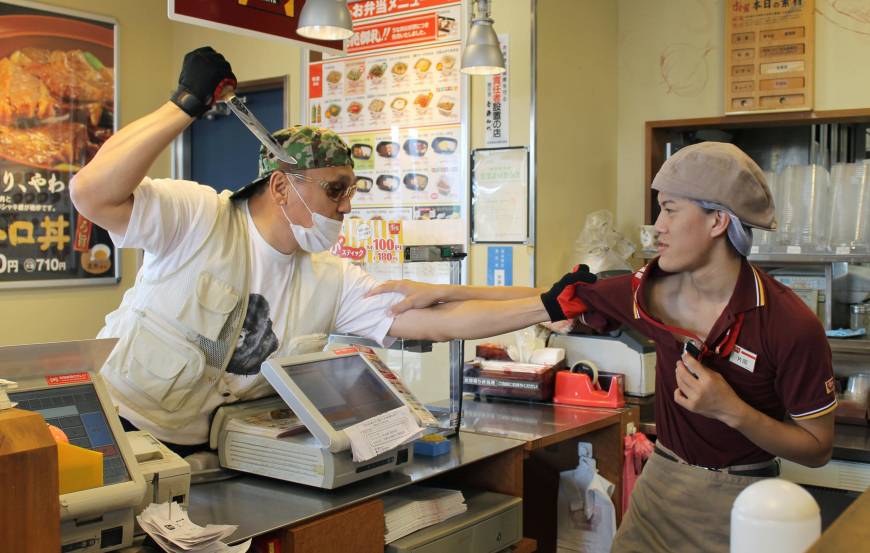What is a gyōmu itaku contract? It is basically an outsourcing contract: A company decides it cannot handle a certain job itself, so it outsources the work to another company — or an individual. Individuals on gyōmu itaku contracts are not considered rōdōsha (employees/workers) in the legal sense, and are thus not protected by the Labor Standards Law or most other labor laws. In that way, gyōmu itaku contracts differ greatly from employment or labor contracts (rōdō keiyaku).
So what are the differences between gyōmu itaku and rōdō contracts? Why do companies choose one over the other when they want work from an individual? The biggest reason they sign gyōmu itaku contracts with individuals is to avoid all the obligations employers have under the many labor laws that have been passed to protect workers.
In exploring the difference between the two types of contracts, let’s start with how rōdōsha are defined in Article 9 of the Labor Standards Act: “In this Act, worker (rōdōsha) means one who is employed at an enterprise or office and receives wages therefrom, without regard to the kind of occupation.”
What is crucial is whether the person is “employed,” which the law deems to be a “subordinate” position. Specific judgments about whether or not those in particular occupations have rōdōsha status are based on the answers to several questions. These are:
• To what degree does the enterprise have authority to give orders to the individual in completing the work?
• To what degree is the individual bound to certain time slots and specific locations?
• Does the individual have the right to accept or refuse each task?
• Can the individual freely arrange for another person to fill in for the work?
• Does the individual own the materials and tools used in carrying out the work?
Someone who comes to a factory or office during set times, takes orders, works and receives wages is obviously a rōdōsha. They work under the authority of their bosses at a fixed time and place and without the right to refuse tasks. They are protected by and have rights according to all labor laws, including the 8-hour workday, with higher pay for overtime, and paid holidays. If they get injured or sick at work, they are eligible to receive workers’ compensation. If they lose their job, they get unemployment benefits.
Someone who receives no orders and can choose the time, place and even whether to complete the task is not a rōdōsha. They are not in a subordinate position and thus labor laws do not apply (except the Trade Union Law). This individual has no rights except union rights — no unemployment insurance, no paid holidays, no workers’ compensation.
Court contests over rōdōsha status have been fought by truck drivers, opera singers, NHK license fee collectors, journalists, hostess bar staff, monks, sumo wrestlers and many more. Winning or losing makes such a difference from a legal point of view that it is no wonder so many conflicts arise. The worst offenders are those who control workers as if they were employees yet go through gyōmu itaku formalities as if these workers were private contractors. This is called gisō ukeoi, or bogus outsourcing.
Gisō ukeoi is rampant in Japan today. Take the nation’s largest gyūdon (beef on rice) shop operator, Sukiya, which has about 2,000 restaurants nationwide. Sukiya offers its customers piping hot gyūdon 24 hours a day, 365 days a year, for a mere ¥270. Its workers, on the other hand, until recently received no overtime pay regardless of how many hours they worked, because the company maintained that it had a gyōmu itaku relationship with these “private contractors.” Some workers unionized, but management refused to negotiate with them for the same reason. (Incidentally, Sukiya staff also had to contend with a rash of late-night robberies, but they could not refuse the graveyard shift.)
The Tokyo Labor Commission ruled in November 2009 that management had committed unfair labor practices by refusing to negotiate. The workers pressed criminal charges against top corporate executives for Labor Standards Act violations (which are indeed criminal offenses that can potentially mean jail time). After an eight-year fight, the company has finally been forced to recognize that those working at Sukiya branches around the country are rōdōsha, thanks to a settlement with the union.
On its website, parent company Zensho announced the “setting up of an independent committee to make recommendations to the company regarding improving the work environment.” This is only a start, but you have to admire the labor union for fighting so hard for so long to wring out this concession.
Thinking about the situation realistically, it is patently absurd to suggest that Sukiya staff can work when and where they like without taking orders from superiors. Walk into a Sukiya anywhere in Japan and you will find the same type of restaurant selling the same gyūdon at the same price. Staff members are under the strict control of management and have only the most paltry degree of discretion. If they are gyōmu itaku freelancers, so is everyone else in the country.
It is not only Sukiya; I see bogus outsourcing all around me, particularly in my labor union work. Companies will fight tooth and nail to save every last yen on labor costs, and in battles over workers’ status, a lot more than that is at stake. The law makes a clear distinction between workers and contractors, but it seems companies often need to be reminded of that.
Hifumi Okunuki teaches at Sagami Women’s University and serves as executive president of Tozen Union (Zenkoku Ippan Tokyo General Union). She can be reached at tozen.okunuki@gmail.com. On the second Thursday of each month, Hifumi looks at cases in Japan’s legal history to illustrate important principles in labor law.

